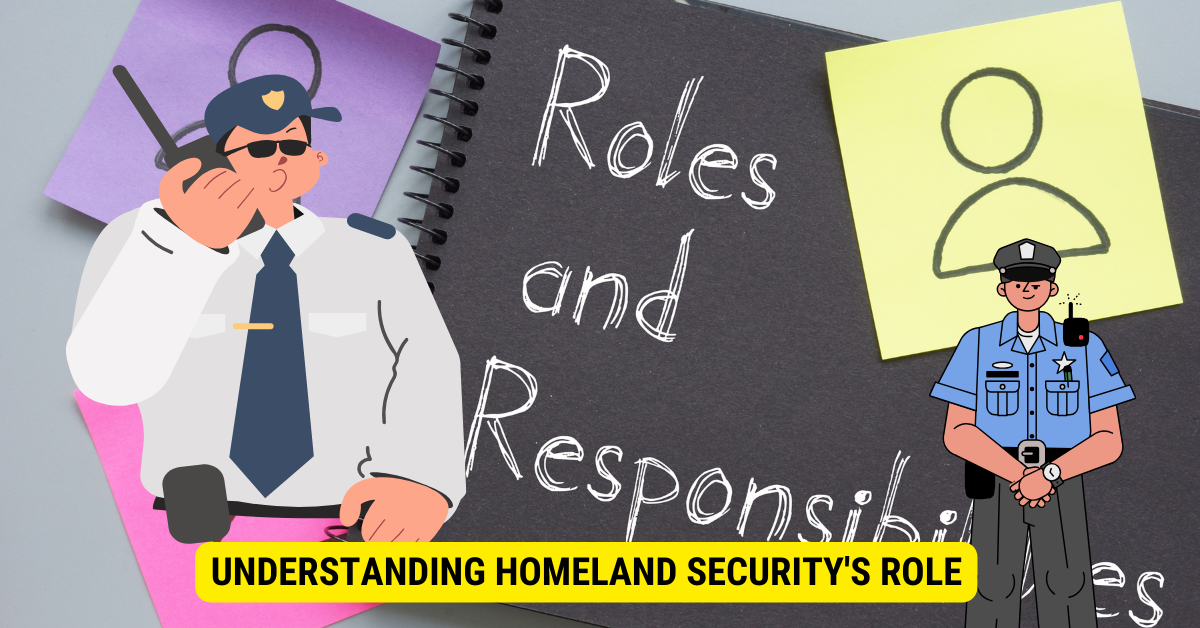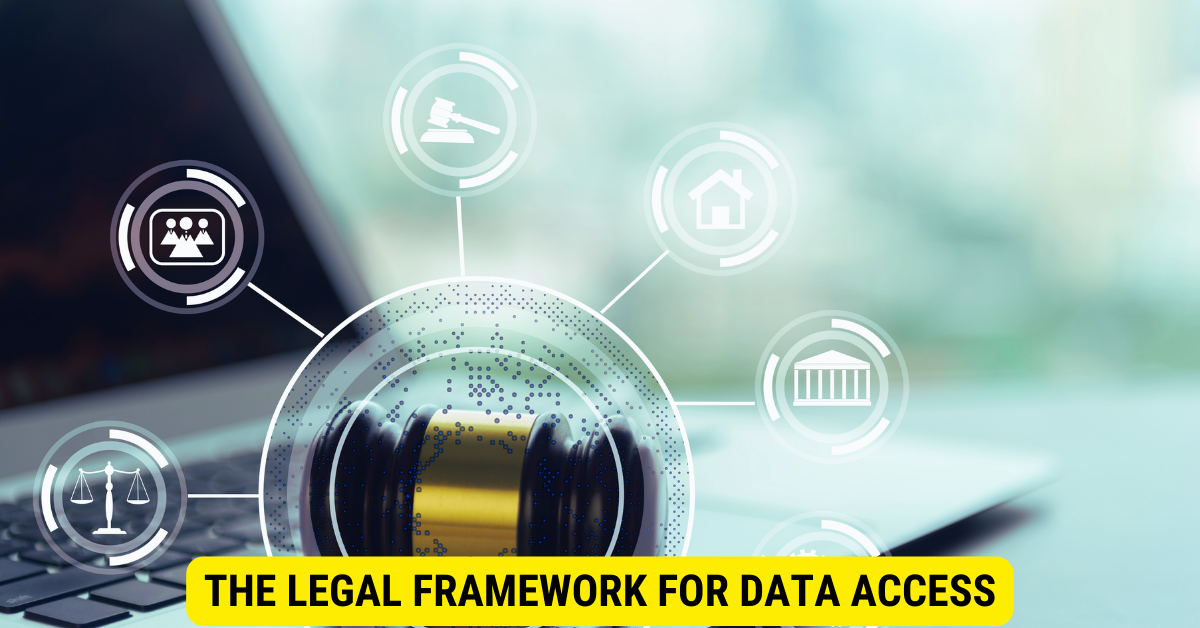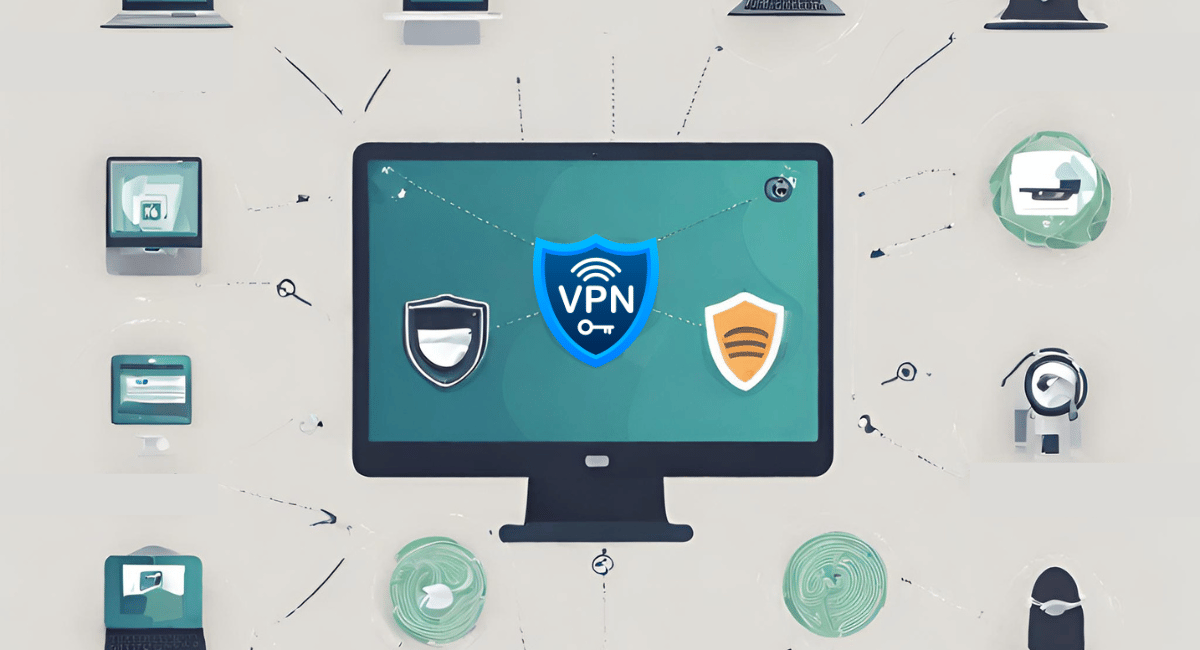Homeland Security, like other government agencies, can access browsing data under specific circumstances, often requiring legal processes such as warrants or court orders.
In the world of increasing internet usage, digital privacy is paramount. With an array of online activities that range from online shopping to social networking, the amount of personal data generated is beyond imagination. This inevitably prompts the question: Can Homeland Security access browsing data?
Understanding Homeland Security’s Role

As an agency, Homeland Security plays a crucial role in maintaining the security and sovereignty of the United States. It’s beneficial to understand Homeland Security’s origins and mandate to comprehend how this works in the contemporary digital landscape.
When the Department of Homeland Security (DHS) was created after the 9/11 terrorist attacks, it marked a significant turning point in the nation’s approach to security. The idea behind its establishment was to structure an agency that could protect the United States from internal and external threats, ensuring the safety of its citizens and the integrity of its borders.
Over the years, the mandate of Homeland Security has evolved to include physical security and the increasingly important realm of digital threats and cyber terrorism. As technology has advanced and the internet has become an integral part of our daily lives, safeguarding cyberspace has become paramount.
Brief History of Homeland Security
The creation of the DHS directly responded to the shocking events of September 11, 2001. The devastating attacks on the World Trade Center and the Pentagon exposed vulnerabilities in the nation’s security apparatus, prompting a comprehensive reevaluation of how the United States could better protect itself.
The establishment of the DHS brought together various federal agencies and departments under one umbrella, fostering collaboration and coordination in pursuing national security. This consolidation aimed to enhance information sharing, improve communication, and streamline operations, allowing for a more efficient response to emerging threats.
Since its inception, the DHS has worked tirelessly to adapt to the ever-changing landscape of security challenges. From combating terrorism to responding to natural disasters, the agency has demonstrated its commitment to safeguarding the nation and its people.
Homeland Security’s Mandate and Responsibilities
The DHS is responsible for many critical roles, from border security to emergency response. One of its fundamental responsibilities is to ensure the security of cyberspace, a realm where personal browsing data becomes an important aspect. As technology advances, the DHS has recognized the need to protect the nation’s critical infrastructure from cyber threats that could have devastating consequences.
Surveillance and security checks in the digital realm often lead to controversies related to internet privacy. The ongoing challenge that Homeland Security faces is balancing the need for security with the protection of civil liberties. Striking the right balance between these two imperatives requires careful consideration and constant adaptation to the evolving landscape of technology and security threats.
Furthermore, the DHS is crucial in securing the nation’s borders. Border security involves not only the prevention of illegal immigration but also the detection and interdiction illicit drugs, weapons, and other contraband. The agency works closely with other federal, state, and local law enforcement entities to maintain the integrity of the nation’s borders and ensure the safety of its citizens.
In addition to its physical and digital security responsibilities, the DHS is involved in emergency response efforts. Whether natural disasters such as hurricanes, floods, wildfires, or artificial incidents like terrorist attacks or pandemics, the agency coordinates and supports response efforts to minimize the impact on communities and facilitate recovery.
Overall, Homeland Security’s mandate is extensive and multifaceted. It requires a comprehensive approach encompassing various security aspects, ranging from physical protection to cybersecurity. As threats evolve, the agency must remain vigilant and adaptive, employing innovative strategies and technologies to safeguard the nation and its people.
The Legal Framework for Data Access

Before delving deeper into how DHS may access browsing data, it’s necessary to understand the legal framework. This details the conditions under which data access is permitted and how it influences one’s right to privacy.
Regarding data access, several key pieces of legislation shape the legal landscape in the United States. These laws define the boundaries within which law enforcement agencies operate and have implications for individual privacy rights.
The Patriot Act and its Implications
One of the most significant pieces of legislation is the USA PATRIOT Act (Uniting and Strengthening America by Providing Appropriate Tools Required to Intercept and Obstruct Terrorism Act). Enacted in response to the 9/11 attacks, this act grants law enforcement agencies certain powers to pursue terrorist activities.
Under the Patriot Act, some provisions allow the collecting of “tangible things” related to a terror investigation. While this may seem broad, it is important to note that the act requires a connection to a legitimate terrorism investigation for data collection to be authorized. This means personal browsing data can be collected if relevant to a terrorism-related investigation.
However, it is essential to recognize that the Patriot Act has been a subject of much debate and controversy since its enactment. Critics argue that it infringes on individuals’ privacy rights and gives the government excessive surveillance powers. On the other hand, proponents argue that it is a necessary tool to combat terrorism and protect national security.
Foreign Intelligence Surveillance Act (FISA)
Another significant legislation is the Foreign Intelligence Surveillance Act (FISA). This act was passed in 1978 and has undergone several amendments since then. FISA provides a legal structure for the surveillance and collecting of foreign intelligence information.
While the primary focus of FISA is on foreign intelligence, there have been instances where the provisions of this act have been used to justify domestic data collection. This has raised concerns among privacy advocates who argue that the lines between foreign and domestic surveillance can become blurred, potentially compromising individual privacy rights.
Other Relevant Laws and Regulations
In addition to the Patriot Act and FISA, there are a host of other laws and regulations that can sometimes offer legal loopholes for data collection. For example, certain provisions in the Electronic Communications Privacy Act (ECPA) and the Cybersecurity Information Sharing Act (CISA) can impact data access.
The ECPA, enacted in 1986, governs the interception and disclosure of electronic communications. It sets standards for government access to electronic communications, including browsing data. However, the application of the ECPA in the digital age is complex and often requires interpretation by the courts.
Similarly, the CISA, passed in 2015, aims to improve cybersecurity by facilitating the sharing of cyber threat information between the government and the private sector. While its primary focus is cybersecurity, there have been concerns about how the information shared under CISA could be used for broader surveillance.
It is important to note that the legal landscape surrounding data access is incredibly nuanced, and the interpretation and application of these laws can vary depending on specific circumstances and court rulings. Therefore, each case involving data access must be evaluated individually, considering the relevant laws and regulations and any legal precedents that may exist.
How Homeland Security Could Access Browsing Data
With an understanding of the role and legal framework of Homeland Security, it’s time to examine the possible methods of accessing browsing data. These vary greatly, from simple requests to more complicated third-party interactions.
Regarding accessing browsing data, Homeland Security has several avenues at its disposal. Let’s explore these methods in more detail:
Direct Request to Internet Service Providers
One of the direct ways in which DHS could access browsing data is through a request to Internet Service Providers (ISPs). Many ISPs are required by law to provide certain data to government agencies upon receipt of a lawful order or warrant.
When a request is made, ISPs must comply and provide the requested data, including browsing history, IP addresses, and timestamps. This method allows Homeland Security to obtain the information they need for their investigations.
Use of Third-Party Data Brokers
In other instances, Homeland Security could access browsing data via third-party data brokers. These brokers aggregate and analyze vast quantities of personal data, often gathered from various online and offline sources. However, this method often raises significant privacy concerns.
Third-party data brokers collect data from various sources, such as social media platforms, online retailers, and public records. They then compile this information into comprehensive profiles, including browsing habits, personal preferences, and sensitive details like financial transactions.
By collaborating with these data brokers, Homeland Security can access a wealth of browsing data to aid their investigations. However, using third-party data brokers raises ethical questions regarding privacy and the potential misuse of personal information.
Involvement of Other Government Agencies
A final way browsing data could be accessed is through other government agencies involvement. Cooperation and data sharing between agencies is fairly common and could lead to Homeland Security indirectly obtaining browsing data.
Government agencies often work together to share information and intelligence to ensure national security. In accessing browsing data, Homeland Security may collaborate with agencies with existing access to such information, such as intelligence agencies or law enforcement bodies.
Homeland Security could indirectly obtain browsing data collected or monitored by other agencies through this collaboration. This method allows for a broader range of data sources and can provide valuable insights into potential threats or suspicious activities.
In conclusion, Homeland Security has multiple methods to access browsing data. Whether through direct requests to ISPs, collaboration with third-party data brokers, or involvement of other government agencies, these methods provide avenues for gathering crucial information to ensure national security. However, it’s important to strike a balance between security and privacy to protect the rights and freedoms of individuals.
Privacy Concerns and Controversies
Given the complexities involved, the prospect of DHS accessing browsing data has led to considerable controversy and numerous privacy concerns.
Balancing National Security and Individual Privacy
The ongoing debate lies in balancing national security with individual privacy rights. While the government aims to protect the nation against threats, it is equally important that this goal doesn’t infringe on personal liberties.
Notable Cases of Data Access Controversies
Several cases have highlighted these concerns. From the Edward Snowden disclosures to the more recent Cambridge Analytica scandal, they exhibit the thin line between security and privacy that we collectively navigate.
Protecting Your Browsing Data
Given this current climate, individuals must understand the tools for protecting their browsing data.
Use of Virtual Private Networks (VPNs)

Virtual Private Networks (VPNs) are popular for enhancing browsing privacy. VPNs encrypt your data and make it harder for anyone trying to view your online activities, including potentially the government.
Browser Privacy Settings and Tools
Browser privacy settings and tools can also provide an added layer of protection. These can limit tracking, block cookies, and control who has access to your browsing data.
Legal Recourses for Data Privacy
Finally, knowing one’s legal recourses is integral to data privacy. While the process can seem complex, understanding data storage, collection, and access rights laws can help individuals keep their online activities private to the greatest extent possible.
5 Key Takeaways
- Legal processes govern access to browsing data.
- Homeland Security may request data as part of investigations.
- Many requests necessitate court orders or warrants.
- Privacy rights and laws define the boundaries of such access.
- The extent of access may vary based on jurisdiction and specific situations.
5 FAQs
Q: Under what circumstances can Homeland Security access browsing data?
A: Typically during investigations and often with appropriate legal processes like warrants or court orders.
Q: Are internet service providers compelled to share data with Homeland Security?
A: If presented with a legal order, ISPs must usually comply.
Q: How do privacy laws affect data access?
A: Privacy laws define data access limits and aim to balance security needs with individual privacy rights.
Q: Can individuals be informed if their browsing data is accessed?
A: Not always. In some investigations, notifications may be delayed or not provided to avoid compromising the investigation.
Q: Are there safeguards against misuse of accessed data?
A: Legal and procedural safeguards are in place to prevent misuse, and data access must align with the law.
Conclusion
Homeland Security can access browsing data under certain conditions, usually requiring legal processes such as warrants. While this aids national security, it raises privacy concerns. The legal basis includes the USA PATRIOT Act and the Foreign Intelligence Surveillance Act. Data access methods involve ISPs, third-party brokers, and inter-agency cooperation. Balancing national security and individual privacy remains paramount.
